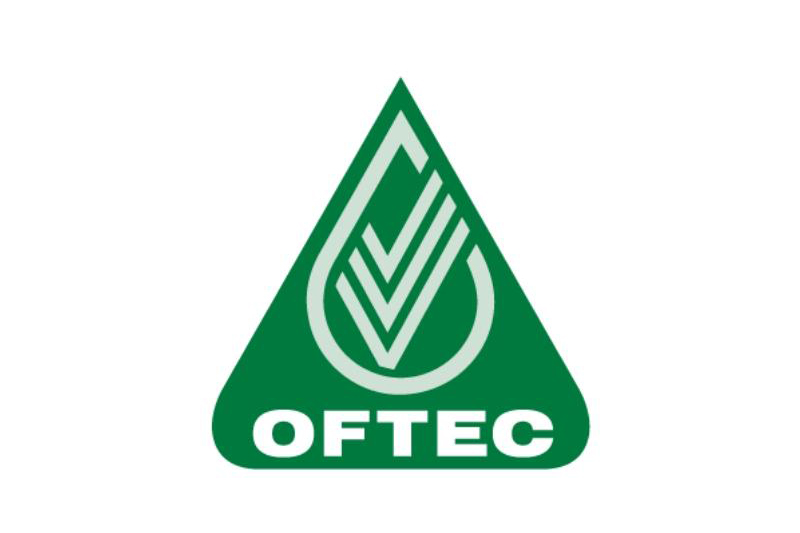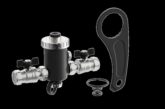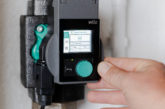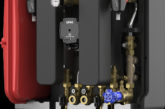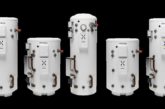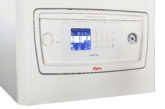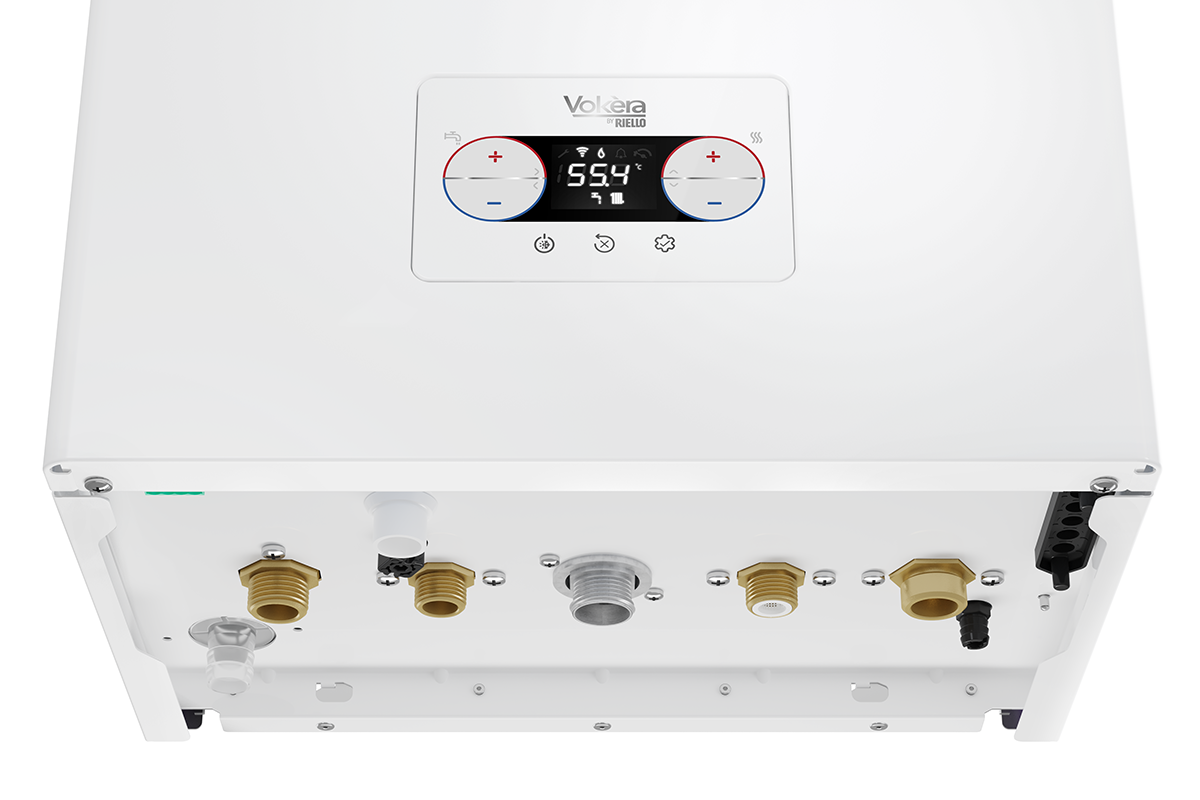
Martin Conlon, National Renewables Manager at Vokèra by Riello, asks: are hybrid boilers ready to fuel the net zero carbon target?
A number of environmental policies have been ‘green-lit’ to ensure the UK government achieves its net zero carbon target by 2050. Householders can get ahead of the game, so to speak, by investing in a hybrid-ready boiler when upgrading their heating system, which is primed to deliver its energy-saving methane-hydrogen blend when local utility networks switch over. This feature looks at additional benefits associated with hybrid-ready boilers, as well as the technology and design that are fuelling a few of the more state-of-the-art hybrid solutions.
When extoling the benefits of the hybrid heating, it’s worth highlighting that ‘hybrid’ in this instance doesn’t mean a system that has been compromised in any way to expand its service offering. In fact, with a hybrid system, the user is getting the best of both worlds: a traditional gas boiler combined with a renewable system, such as an air or ground source heat pump, that is capable of switching between the two technologies. This enables an energy efficient operation that reduces a property owner’s carbon footprint whilst succeeding in terms of cost-efficiency.
Why go hybrid?
An air source heat pump uses electricity to subtract heat from the atmosphere. Refrigerant gas, which has a very low boiling point, carries out the heat transference. This process allows an excellent coefficient of performance (CoP), with one kilowatt of electrical energy being capable of providing four kilowatts of heat.
However, as the outside temperature drops the heat pump’s CoP is impacted and the eco-efficiency drops, which leads to less beneficial economics. As such, natural gas remains about three times less costly than electricity per kilowatt per hour. Hence the ability to switch between natural gas and renewable heat sources makes a hybrid system an attractive option.
Getting the best from an ASHP
A heat pump runs most effectively on days when a property’s heating requires a steady consistent demand for a more comfortable indoor environment. At these times, renewable electricity is being used to run the heating and domestic hot water through a storage cylinder.
At near or just below freezing temperature bands, which represents 5-10% of the year, the heat pump might need some assistance. This will make the flow temperature hot enough to work with appropriately-sized boilers.
Hybrid control benefits
Depending on the system, when temperatures fall further below freezing the heat pump will not work as effectively. It’s an issue that can be overcome and managed via a hybrid enabled control that is inbuilt with a boiler.
The Modbus control, for example, is integral to Vokèra’s Unica MAX residential boiler range and the Riello NXHM range of air source heat pumps. This sophisticated protocol allows a boiler to switch between or combine the heat generators, to ensure a heating performance that is appropriate for a property at any given outside temperature.
Government assistance
Air source heat pumps are seen as a credible, more sustainable alternative to fossil-fuelled heating systems. Indeed, the government is providing grants to encourage property owners to install low-carbon alternatives such as heat pumps through its Boiler Upgrade Scheme (BUS).
Available to domestic and small non-domestic properties in England and Wales, the scheme runs until 2025, with participants being able to claim £5,000 off the cost and installation of an air source heat pump. However, currently hybrid systems are not eligible for funding under BUS.
Retrofit option
As well as becoming an increasing presence in new-build properties, air source heat pumps work well when retrofitting to an existing boiler system. This is of particular benefit for older houses or non-standard properties when changing the heat emitters could cause major disruption.
In terms of expense, if buying a hybrid heating system might be seen as a step-too-soon for householders in terms of finance, opting for a hybrid-enabled system would represent a sound investment. This would allow customers to upgrade to heat pump technology at a later date to one that functions with greater efficiency and reliability – an outcome that will likely extend the lifespan of the system itself.
Insulate to optimise energy performance
Hybrid heating systems are a facilitator to greater energy efficiency, lower heating bills and a reduced carbon footprint, but householders should not view them as a be-all-and-end-all solution.
Benefits gained from heat pump technology will likely be negated in poorly insulated properties. Therefore, prior to ‘going hybrid’, householders should ensure their building’s walls, floors and roof are fitted with regulation levels of insulation. If this is achieved, then the best of both worlds’ performance engendered by a hybrid system will begin to take positive effect.






